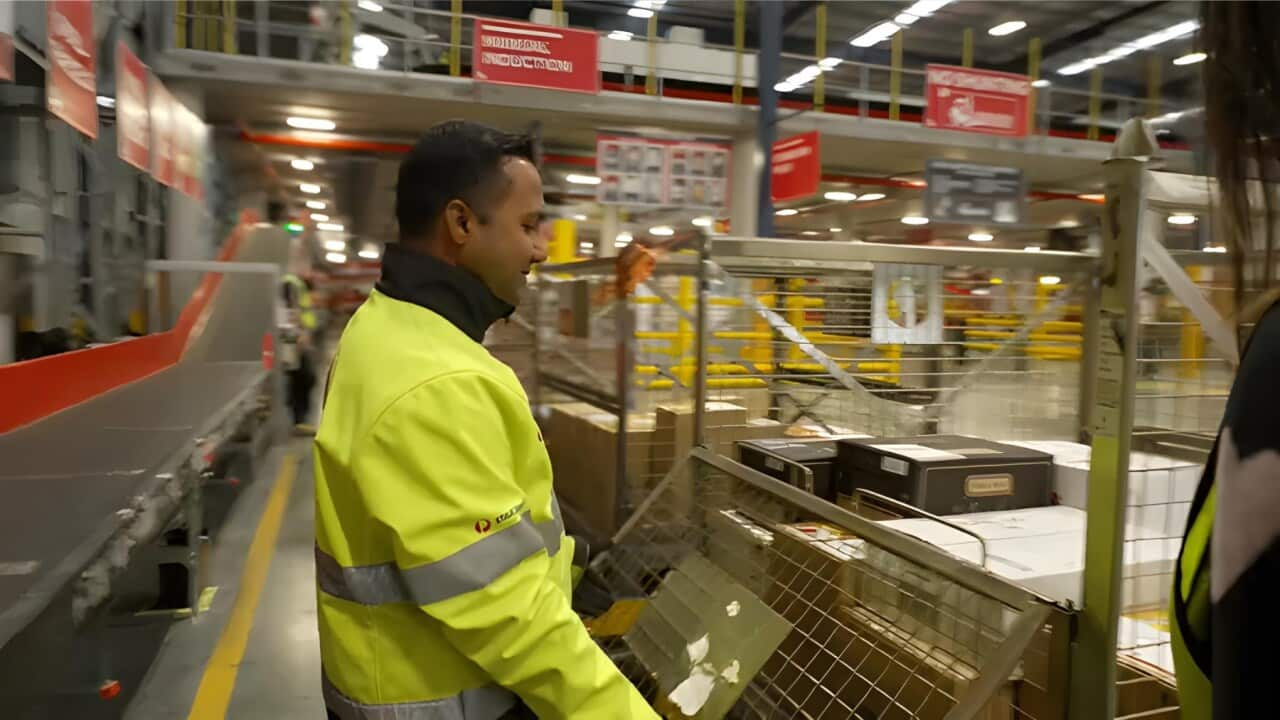TRANSCRIPT
Jerry Cardoza is a refugee from Bangladesh and holds two masters degrees.
Even so, he has struggled to find a relevant job here.
He gratefully took roles as a cleaner, dish hand and factory worker, holding down three casual jobs at a time.
But the work was unstable and unfulfilling.
“Working in the factory, that was completely new to me. And I mean psychologically, I was devastated because I was thinking that I was in the classroom as a teacher, and now I work in the factory from 3:00 PM to 3:00 AM. I was actually crying. I was crying and thinking, it is like a paradise lost for me.”
Jerry fled Bangladesh with his wife Loretta and daughter Gloria in 2019, gaining a protection visa with work rights in Australia the same year.
He had previously worked in tertiary education and has a Masters in Business Administration and a Masters in English Language Teaching.
"I was a lecturer in the university. It's one of the top universities of Bangladesh. It's called BRAC University. It's one of the private universities, but top. So being a lecturer, my main job was to teach linguistics."
Change came through a job placement program with Australia Post who worked with social enterprise Community Corporate to recruit, train and support refugees.
Community Corporate CEO and Founder Carmen Garcia says refugees are be a valuable asset to employers.
"They have a great attitude. They've proven to be highly loyal and reliable, and they're ambitious. They're ready to start at an entry level job, but it's not going to stop there."
And Jerry believes he is making a valuable contribution.
"Actually means a lot because this is my bread and butter. // So definitely when I step into this place, I feel that no, I'm a part of this big family because in my place, of course, I'm with my daughter and with my wife, but here I'm with a large community. So I don't feel that I'm somebody from other country or I'm somebody from other background."
It’s a feeling shared by colleagues as Jerry's manager Rhys Hutcheonson explains.
"He was a very humble person, came in and just hit the ground running, was always open to wanting to learn and do better and understand how things worked and how we did things. And just very, very quickly became a big part of the team."
The project is a success and is now expanding, with a goal to make refugees 1.5 per cent of the 43,000 strong workforce by 2027.
This time they'll be supported by Thrive Refugee Enterprise.
Rhys Hutcheonson says it’s a win-win situation.
"Ultimately what I learned most about it at the end was growth as myself as an individual when it comes to people skills. So Jerry's actually taught me a lot along the way. I think I probably learned more from Jerry than he probably learned from me."
With 20,000 new humanitarian arrivals expected this financial year, researchers say more support for employers is essential.
Jeannie Lee is a Lecturer in Management at the Newcastle School of Business.
"So many of the refugees who find an employment tend to stay in those employment opportunities and with those employers and also they are a good source of social cultural integration within the organisation. So they tend to bring in good vibe to the organisation."
Carmen Garcia says employers need to step up.
"There's a huge untapped talent pool amongst refugees, and that's where I think it's so important that we do bust these myths and we create opportunities that reduce this unconscious bias. Creating a screening and selection processes where they can actually meet the person."
For Jerry, this role could one day lead back to the teaching career he loved.
"So if there is any chance in future, definitely I will contribute my experience, my knowledge to training and assessment, working in this area. If there is any chance for me."
Hope born out of a new opportunity.













